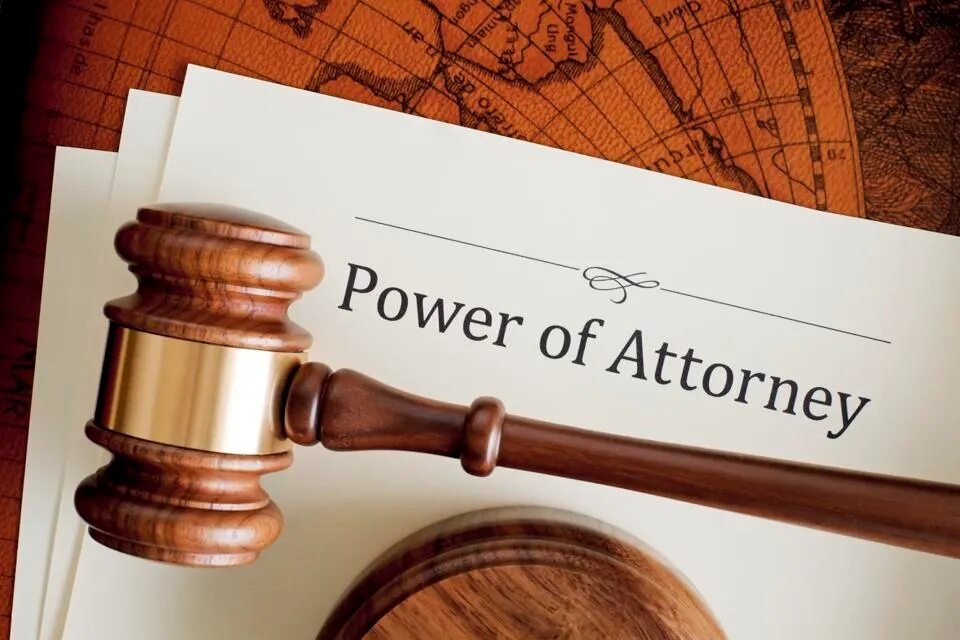What are the 4 Types of Power of Attorney Used in Estate Planning?

Good estate planning hinges on a thorough understanding of the process. For example, what are the four main types of power of attorney?
Most people have never thought about this consideration before–until they had to. This guide aims to provide clarity to your entire estate planning experience. Read on to learn everything you need about how different types of power of attorney influence the process.
What is a Power of Attorney?
A Power of Attorney is a legal instrument conferring authority to a designated agent, allowing them to act on your behalf in legal matters. This pivotal document ensures that someone you trust can decide for you when you cannot.
General Power of Attorney
The General Power of Attorney is a comprehensive tool, granting your chosen agent the authority to handle diverse aspects of your life, from financial transactions to critical legal decisions. Its versatility makes it valuable for various situations, offering a broad spectrum of decision-making capabilities.
Limited Power of Attorney
In contrast, the Limited Power of Attorney is a more focused instrument. It empowers your agent with specific decision-making authority, ensuring that their actions are confined to predetermined areas, providing a tailored approach to delegation.
For example:
Imagine you’re selling your home, and the closing date coincides with a business trip or a planned vacation. In such a situation, you might use a Limited Power of Attorney to grant a trusted friend or family member the authority to represent you during the real estate closing.
This limited authority specifically covers signing the necessary documents for the property sale on your behalf. Doing so ensures the smooth progression of the real estate transaction without being physically present.
Durable Power of Attorney
The Durable Power of Attorney is a document that provides a trusted loved one with the ability to make decisions on your behalf if you become incapacitated. For example, if you are in a car accident and are unable to make medical choices for yourself, a Durable Power of Attorney designation would allow a trusted person to ensure that your wishes are carried out.
Springing Power of Attorney
Activated under specific conditions, the Springing Power of Attorney adds an element of flexibility to the decision-making process. It lies dormant until triggered, ensuring your agent takes action precisely when their authority is needed.
A triggering condition could be a doctor’s note indicating that you can no longer make healthcare choices on your own.
Selecting and Officially Appointing Your Power of Attorney Agent
They are selecting a trustworthy individual to act as your agent, which is crucial. Whether a spouse, family member, or close friend, the chosen agent should be able to navigate complex decisions and work in your best interests.
Once you’ve chosen someone, you need to appoint them formally. Clarity in specifying powers and the scope of authority is paramount, ensuring that your agent comprehensively understands their responsibilities and limitations.
Revoking and Amending Power of Attorney
The Authority to Revoke a Power of Attorney allows you to reassess and reallocate decision-making powers based on evolving circumstances. This safety valve ensures your legal arrangements align with your current needs and preferences.
Adjusting your Power of Attorney follows a structured process involving legal formalities. This ensures that amendments align with your evolving preferences and circumstances, maintaining the document’s relevance and accuracy.
Medical Power of Attorney
The Medical Power of Attorney empowers your agent to make critical healthcare decisions on your behalf if you become incapacitated. This designation ensures that your medical preferences are honored, providing a dedicated representative for your health-related choices.
Financial Matters
The Financial Power of Attorney equips your agent to manage financial affairs, pay bills, and make strategic decisions on your behalf. This financial proxy ensures a seamless continuation of financial management, even in your absence.
Responsibilities and Limitations of Agents
Agents are responsible for acting in their best interests, covering a spectrum of decision-making from financial matters to healthcare choices. Their role demands trust, competence, and unwavering commitment to your preferences.
Limitations of Agents
While agents wield significant authority, they operate within legal boundaries. Understanding these limitations is crucial to avoiding potential consequences and ensuring the ethical execution of their responsibilities.
Clarifying Misconceptions about Power of Attorney
Contrary to common misconceptions, this legal tool doesn’t strip you of control; instead, it acts as a safeguard, ensuring your voice is heard even when you can’t articulate your wishes.
Get Personalized Advice from Estate Planning Professionals
Clarity is the linchpin in comprehending the 4 Main Types of Power of Attorney. Each type serves a unique purpose, contributing to your legal arsenal as you navigate the intricacies of decision-making in various aspects of life.
For those seeking a deeper understanding of estate planning, additional resources such as legal guidelines, case studies, and expert insights can enrich your knowledge and inform your decision-making process.
Are you embarking on estate planning? Reach out to Your Legacy Legal Care™ for personalized advice. Safeguard your legacy with meticulous care and expertise. Taking this crucial step today ensures peace of mind for your future self.






